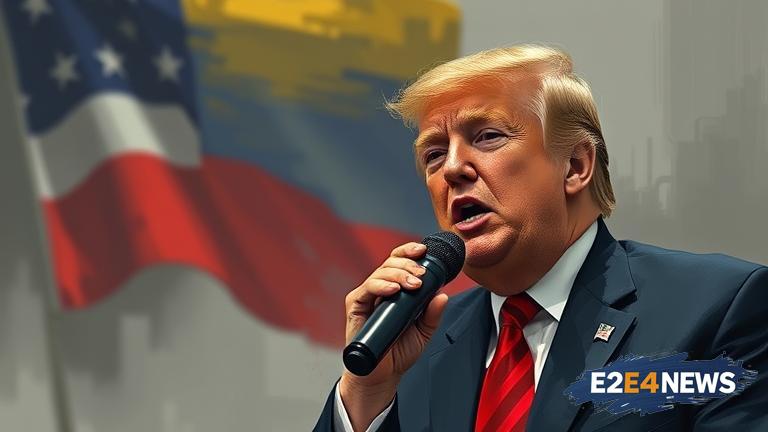The Trump administration’s policies towards Venezuela, aimed at toppling the authoritarian regime of President Nicolas Maduro, have had an unintended consequence: they have helped Maduro bounce back and consolidate his power. Despite the US imposing harsh economic sanctions, recognizing opposition leader Juan Guaido as the legitimate president, and attempting to isolate Venezuela diplomatically, Maduro remains firmly in control. The Venezuelan economy, although severely strained, has shown signs of stabilization, and the government has managed to maintain a semblance of normalcy. The US sanctions, while intended to cripple the regime, have had a devastating impact on the Venezuelan people, exacerbating the humanitarian crisis and driving more citizens into poverty. The diplomatic efforts, including the recognition of Guaido, have also backfired, as many countries have refused to follow suit, and the opposition has become increasingly fragmented. Maduro has skillfully exploited these divisions, portraying himself as a champion of national sovereignty and resistance against US imperialism. The Venezuelan military, a crucial factor in the country’s politics, remains loyal to Maduro, and the government has taken steps to increase its control over the economy and suppress dissent. The opposition, meanwhile, has struggled to present a united front, and its leadership has been criticized for being out of touch with the needs and concerns of ordinary Venezuelans. The international community, including the European Union and the Organization of American States, has called for a peaceful resolution to the crisis, but their efforts have been hindered by the lack of a clear and cohesive strategy. The US, in particular, has been criticized for its heavy-handed approach, which has alienated potential allies and emboldened Maduro. As the crisis deepens, the humanitarian situation continues to deteriorate, with millions of Venezuelans lacking access to basic necessities like food, medicine, and clean water. The economy, once one of the most prosperous in the region, is now in shambles, with hyperinflation, widespread poverty, and a massive brain drain. The government’s response to the crisis has been inadequate, and its priorities have been questioned, as it continues to spend heavily on the military and propaganda efforts. The international community must re-evaluate its approach and work towards a more nuanced and sustainable solution, one that prioritizes the needs and well-being of the Venezuelan people. This could involve a combination of diplomatic efforts, economic support, and humanitarian aid, as well as a commitment to respecting Venezuela’s sovereignty and promoting national reconciliation. The US, in particular, must recognize the limitations of its current approach and be willing to engage in constructive dialogue with all parties involved. Only through a collaborative and inclusive effort can the crisis in Venezuela be resolved, and the country begin to rebuild and recover. The consequences of inaction or further escalation would be catastrophic, not just for Venezuela, but for the entire region. The international community has a responsibility to act, and to act now, to prevent further suffering and promote a peaceful and democratic resolution to the crisis. The situation in Venezuela is complex and multifaceted, and there are no easy solutions, but with a commitment to cooperation, diplomacy, and the well-being of the Venezuelan people, it is possible to find a way forward. The US and the international community must work together to support a peaceful and democratic transition in Venezuela, one that prioritizes the needs and aspirations of the Venezuelan people. This will require a sustained and collective effort, but the rewards will be well worth it: a stable, prosperous, and democratic Venezuela, where all citizens can live with dignity and respect. The alternative is a continuation of the current crisis, with all its attendant suffering and instability, and the potential for further conflict and chaos in the region. The choice is clear, and the time to act is now. The Venezuelan people deserve nothing less, and the international community has a responsibility to support them in their struggle for a better future. The crisis in Venezuela is a test of the international community’s commitment to democracy, human rights, and the well-being of all people, and it is a test that we must not fail. The consequences of failure would be too great to bear, and the rewards of success would be immeasurable. The time for action is now, and the international community must rise to the challenge. The future of Venezuela, and the stability of the region, depend on it. The US and the international community must work together to find a solution to the crisis, one that prioritizes the needs and well-being of the Venezuelan people, and promotes a peaceful and democratic transition. This will require a sustained and collective effort, but the rewards will be well worth it. The Venezuelan people deserve nothing less, and the international community has a responsibility to support them in their struggle for a better future.
